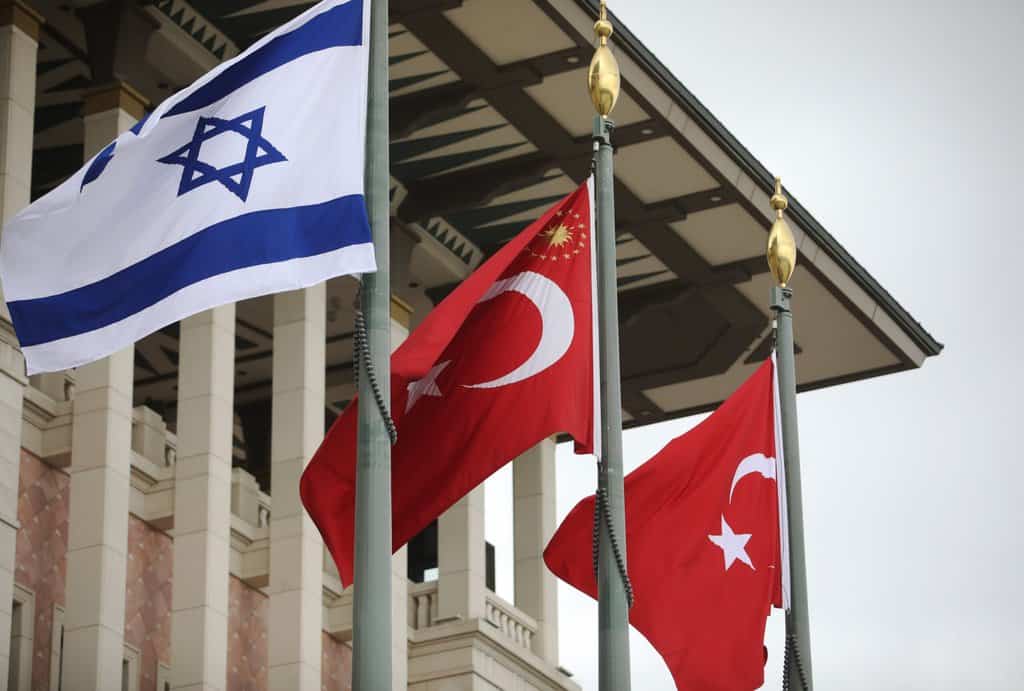The diplomatic relationship between Turkey and Israel officially ended Wednesday as Turkish President Recep Tayyip Erdoğan announced the severance of all ties with Israel. This decision marks the culmination of a long history of strained relations and reflects the complex regional and humanitarian issues that have defined interactions between the two nations.
The Termination of Diplomatic Ties
Turkey’s decision to sever ties follows rising tensions in the wake of Israel’s military response to the October 7 Hamas attack. The ongoing conflict in Gaza has resulted in significant civilian casualties, which Turkey has cited as a central concern. Erdoğan stated that relations would not be restored during his tenure, signaling a firm stance on the matter.
This decision follows a history of diplomatic strain. Turkey had already recalled its ambassador to Israel in previous years, and Israel closed its embassy in Ankara, citing security concerns. The deteriorating relationship reached its peak amid the recent Gaza crisis, which has become a focal point of international and domestic attention.
Broader Diplomatic Efforts
The severance of ties is part of a broader diplomatic approach by Turkey regarding the Gaza crisis. Turkish representatives at the United Nations have advocated for an arms embargo against Israel, an initiative that has gained support from several countries and international organizations. These efforts are part of a growing international dialogue on the humanitarian situation in Gaza and the broader implications for the region.
Additionally, Turkey has pursued legal action, filing a genocide case against Israel at the International Court of Justice earlier this year. These efforts reflect Turkey’s strategy of addressing the situation through both political and legal channels, highlighting its intent to influence international policy and accountability mechanisms.
In parallel, Turkey has coordinated humanitarian aid to Gaza and called for a ceasefire. These actions demonstrate Turkey’s focus on providing immediate support to the civilian population while addressing broader geopolitical concerns. The combination of legal, political, and humanitarian strategies doesn’t fail to show the complexity of Turkey’s approach in navigating this crisis.
Implications for Regional and Global Dynamics
The severance of Turkish-Israeli relations has significant implications for the Middle East and beyond. As a member of NATO and a key regional power, Turkey’s actions are likely to influence how other nations engage with the situation in Gaza and their broader relationships with Israel. This decision could prompt a reevaluation of diplomatic and strategic alliances, particularly among nations with vested interests in Middle Eastern stability.
The end of diplomatic ties could also impact bilateral trade, defense cooperation, and other areas of mutual interest. For decades, the Turkish-Israeli relationship played a stabilizing role in regional geopolitics. Its dissolution may necessitate adjustments in regional alliances and strategies, potentially altering the balance of power in the Middle East.
The move also adds complexity to the roles of global powers like Russia, China, and the United States in Middle Eastern diplomacy. Turkey’s growing involvement in the Gaza crisis positions it as a prominent actor in shaping international responses to the conflict. As this situation develops, Turkey’s role may influence broader debates about accountability, international law, and humanitarian intervention.
A Turning Point in Bilateral Relations
The decision to sever ties marks a significant shift in Turkish-Israeli relations, reflecting the broader regional challenges and humanitarian concerns at play. The implications of this decision will likely be felt across economic, political, and strategic domains, requiring both nations to adapt to a new dynamic.
While the long-term impact of this decision remains uncertain, it underscores the importance of addressing the underlying issues driving these tensions. As both nations adjust to this new reality, the severance of ties serves as a reminder of the complexities inherent in Middle Eastern diplomacy and the interconnectedness of humanitarian, political, and strategic considerations. This development could have lasting consequences for regional stability and international responses to conflicts of this nature, making it a defining moment in the history of Turkish-Israeli relations.





